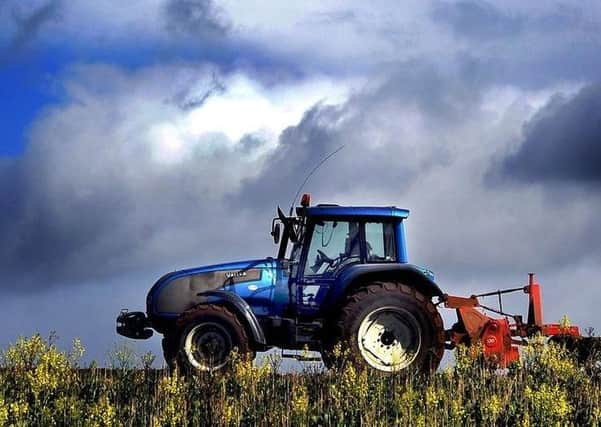George Eustice: Ploughing on with agriculture reform '“ and Brexit


After nearly half a century of being tied to burdensome and box-ticking EU rules, we have designed new agriculture policy from first principles, with the environment at the core.
The Bill will bring farming back under domestic control, so we have the power to make decisions in the best interest of our country. It means sheep farmers in Yorkshire will no longer have to operate under the same rules as orange farmers in Spain – or olive farmers in Greece.
Advertisement
Hide AdAdvertisement
Hide AdYorkshire farmers, who farm some of the most diverse land in England, will gain in a number of ways from the Bill. And the environment, upon which all of our futures depend, will be protected and enhanced so the next generations of farmers can continue to produce food alongside delivering benefits for nature and wildlife.


Leaving the CAP: under the EU’s Common Agricultural Policy (CAP), farmers have been paid public money for the most part based on the total amount of land they have. This is wrong for many reasons.
It has failed to properly reward farmers for the goods and services they provide for the environment. Subsiding farmers in this way has driven up land rent prices, blocking new entrants to the industry and impeding opportunities for farmers to boost productivity and invest meaningfully in their business.
End of Direct Payments: Our Agriculture Bill is predicated on a simple principle – that public money should be used to secure those goods from which the public benefit, but for which there exists no functioning market.
Advertisement
Hide AdAdvertisement
Hide AdThis includes protecting the environment, providing public access to the countryside that we enjoy, and promoting the health and welfare of livestock.
Over the next decade we will phase out Direct Payments and replace them with a new system based on paying public money for public goods. This system will work to deliver a cleaner and healthier environment for future generations.
Agricultural transition: We know that farmers will need time to adapt to a new system. That is why a seven-year agricultural transition period – from 2021 to 2027 – will help support farmers in the move away from direct payments.
During this time, we are changing how farmers access their farm payments, enabling us to delink payments from the need to actively farm the land, which is the current stipulation of EU law.
Advertisement
Hide AdAdvertisement
Hide AdBy de-linking payments, farmers will be able to access their payments easily, and can start to implement the changes to the farm they want to achieve in the post-EU system.
Farmers who may have been uncertain about the future can make their plans for the future become a reality. This might involve investing in new farm machinery, or a new business venture such as holiday lets or an artisan farm shop to bring in future income.
New provisions will allow for support to be paid to help farms improve their productivity through grants. Provisions will increase fairness in the supply chain, allowing farmers to receive a fair share of value.
Move to a new system: Tests and trials for a new Environmental Land Management (ELM) system, based on the principle of public money for public goods, will be carried out from this year.
Advertisement
Hide AdAdvertisement
Hide AdWe know that a farmer growing forced rhubarb near Wakefield can contribute to improving the environment in a different way to the upland farms of our National Parks. These voices will be essential in shaping a new farming policy that preserves the land for future generations of farmers and growers.
When the new system is introduced, grazing sheep on the North York Moors, for instance, will be able to access payments for their work to look after that spectacular landscape, which will benefit both business cash flow and the wildlife on the moorlands.
The Agriculture Bill sets the stage for a new order of more productive, environmentally-conscious and profitable land management. I’d encourage all farmers with an interest to go online and find out more about the Bill and what it means for you.
George Eustice MP is the Minister of State for Agriculture, Fisheries and Food.